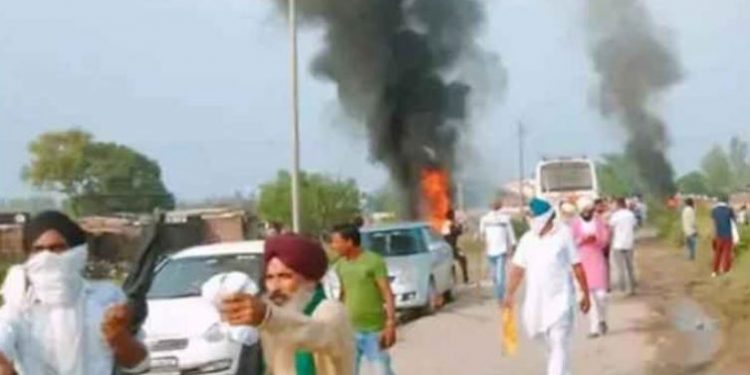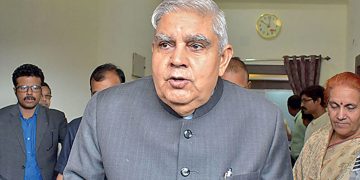New Delhi: The Supreme Court Monday slammed the Uttar Pradesh government stating that prima facie it appears that one accused was given benefit in the two overlapping FIRs — one where protesting farmers were mowed down by a moving and the other of alleged lynching of the accused — in the Lakhimpur Kheri violence incident. The top court said it appears the evidence gathered in the lynching FIR was being collected to protect a particular accused.
A bench headed by Chief Justice N.V. Ramana and comprising Justices Surya Kant and Hima Kohli shot a volley of questions at senior advocate Harish Salve, representing the Uttar Pradesh government.
Justice Hima Kohli questioned Salve as to why only Ashish Misra’s phone has been seized so far and what about the phones of other accused in the matter?
The bench further queried Salve, did the other accused not use mobile phones?
Salve, citing the Uttar Pradesh government’s status report, submitted that some of the accused said they don’t have cell phones, but CDRs have been obtained.
Justice Kohli said, “Is it your statement that none of the other accused had cell phones on them?”
Salve said they have clinching evidence that the accused were there and eyewitnesses have given details of all of them.
At this juncture, Justice Kant said prima facie it appears that one particular accused is seeking to be given benefit by overlapping two FIRs.
He added that it was being said that there are two FIRs and the evidence collected in one FIR would be used in another. He further elaborated the evidence in FIR 220, where the mob allegedly lynched the accused who were in the car, is being procured in a way to protect a particular accused.
Salve submitted that there is no mix up between the two FIRs. The bench replied, “But it has to be separately investigated…”
Salve submitted that it was already being done and both the FIRs were being probed. He pointed out that FIR 220 is about the public lynching, so collecting evidence is bit difficult.
Justice Kant said: “One set of murder is of the farmers, one set is of journalists, and one is of political worker…”. He added that now a witness in the third set gives a favouring statement for the accused in the first case, which involves the death of farmers.
Salve replied that when witnesses come to give statements, the police have to record their statements and added that all CDRs are with the police.
Justice Kant said that the court expects from the SIT that those coming to depose in the case of farmers’ death will be an independent exercise and the evidence, which is being collected in the other case, cannot be used in it.
He told Salve that it appears that this SIT is unable to maintain investigative distance between the FIRs. “Whosoever is coming forward, whether they have material evidence or not, they are not bound to record…”, added Justice Kant.
The bench said to ensure that evidence in two FIRs is recorded independently, it is inclined to appoint former judge from a different high court to monitor investigation and recommended the names of two retired judges from the Punjab and Haryana High Court. Salve sought some time to take instructions from the government.
The top court has posted the matter for further hearing Friday.
The top court had registered a petition based on a letter by two lawyers seeking a probe by the CBI in the Lakhimpur Kheri violence. A total of eight people, including four farmers and a local journalist, apart from the two BJP men and their driver, were killed in the incident. Farmers were allegedly mowed down by a car of Ashish Misra, son of Union Minister of State Ajay Misra Teni.






































